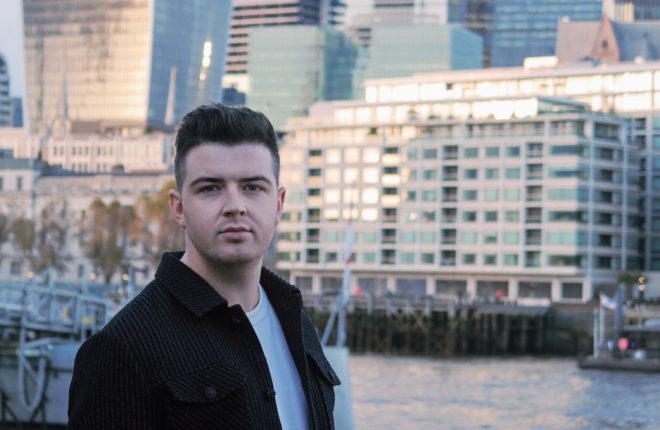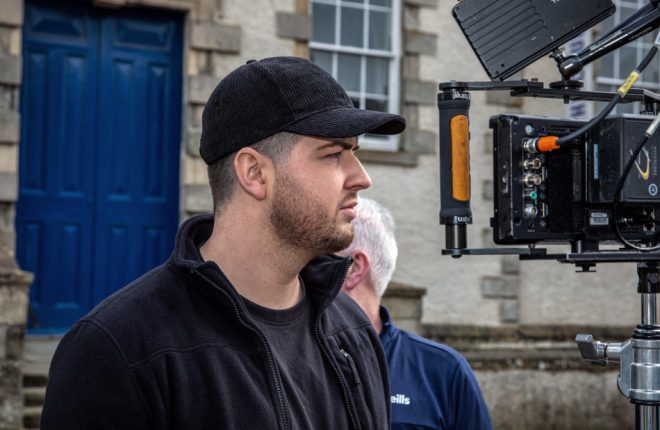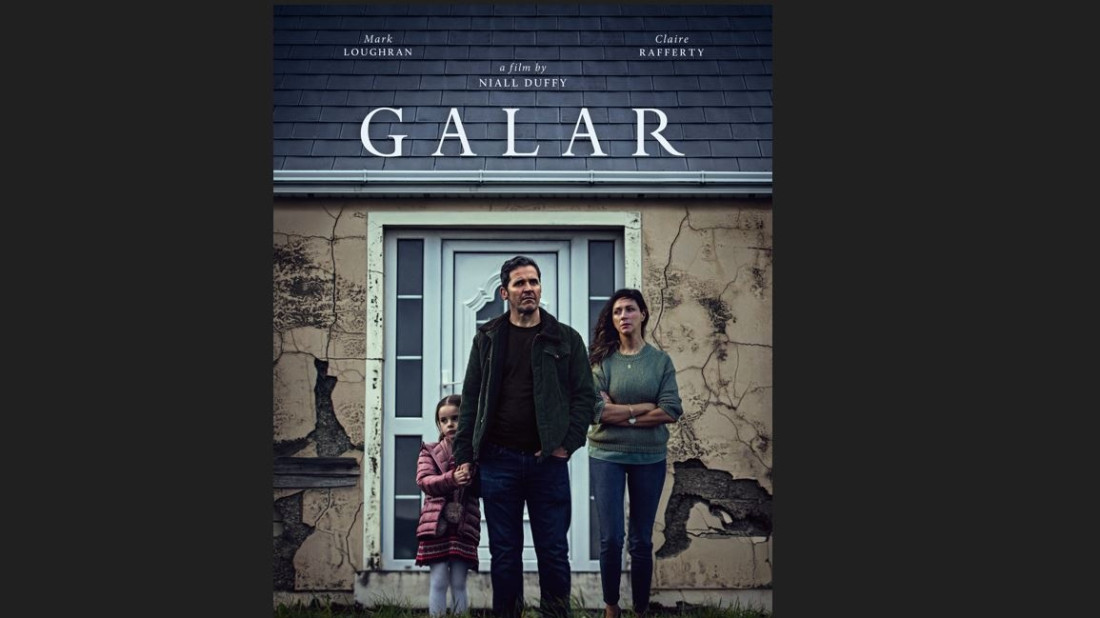In this week’s Third Degree column, Niall Duffy, Managing Director of Keltik Elk Films talks to Paul Bradley about his film on the defective concrete crisis
Hi Niall, thank you for taking this interview. I presume you’re still busy promoting your film Galar?
Hi Paul, thanks for the opportunity. Things are going really well. It’s been a busy time, but a good kind of busy. Galar is just starting to get out there and the response has been incredibly positive. The level of local interest has been overwhelming. It’s great to see how much it’s resonating with people.
Galar is a short drama about the mica scandal, so very timely for Donegal at least. For a local issue like that, was it hard to find others interested?
Setting out was a challenge, but the community’s response was incredibly inspiring. Once I shared the vision, people immediately connected with it—everyone knew someone affected. That connection sparked real generosity, with people offering their time, locations, and support in any way they could.
In fact, we were able to shoot in a real defective-block home that was due for demolition. The former residents supported us documenting its condition to help tell this story authentically. That kind of collaboration reflected the very themes of the film: community and unity. The making of it stood side by side with its subject matter.
It was probably an eye-opener to research. Does it draw much from your own experiences, or the experiences of people you know? Have you taken anything from the project – about people, company law, government responsibility?
Definitely, researching this was like falling down a rabbit hole. Every day brought a new discovery. And yes, the film is very much inspired by people I know: family, friends, neighbours. That personal proximity to the crisis is what got the ball rolling.
Thematically, the film is about responsibility. Every character in Galar carries a burden in some form: familial, communal, institutional. Whether they confront or deflect that responsibility has consequences. It was important to show that, not just for dramatic effect, but because it reflects the reality of what people are going through.
Can a drama about an issue like this reach more people, or clarify more points, than news reports can?
Yes. The defective block crisis is something that naturally elicits sympathy. When one of the fundamental aspects of life like your home becomes unstable, and there’s no clear route to justice, people can relate to that on a human level.
Film is a powerful and accessible medium for that. News reports are critical, but they rarely get access inside the day-to-day reality—what it’s like behind closed doors in a crumbling home. Galar looks at that: the strain on relationships, the exhaustion, the sense of limbo. We wanted to show the mental and emotional toll, not just the legal or financial side.

Niall Duffy – ‘Once I shared the vision for the film, people immediately connected with it.’
Your previous film, A Rock In The Sea (filmed in Inishtrahull), was about a 9th-century monk coming to terms with his life in a wet, gloomy Ireland – what drew you to that particular theme?
The idea came to me during lockdown, thinking about isolation and what setting could reflect that best. An island felt right, and Inishtrahull had a personal connection—my ancestors came from there. It’s rich in history and visually striking, which made it perfect both emotionally and cinematically.
The image of an island standing firm in stormy seas became a metaphor for internal resilience, mirroring the character’s struggle in harsh conditions. It captured the tension between chaos and calm, and how isolation can reveal something fundamental in a person.
It won awards and was noted for its cinematography. How important are awards for small films or their makers?
In the short film world, awards can be a really useful boost. They’re not the be-all and end-all, but they do help lift smaller films onto a larger stage. Shorts are often made without commercial intent, so that kind of recognition is really about extending reach and letting a story connect with people nationally and internationally. And it’s a great feeling to know your work is being seen in places you never thought it would be.
Was there a particular film that made you realise this was what you wanted to do?
That’s a tough one. Growing up, it was the usual suspects: Star Wars, Gladiator, L.A. Confidential.
But later I got into international cinema, and Bong Joon Ho’s Memories of Murder (2004) marked that shift.
It showed me that films could work on multiple levels, with symbolism and meaning woven into every narrative choice. It opened my eyes to the depth and intention behind great filmmaking.

Niall Duffy on set
The name of your company, Keltik Elk, evokes an interest in Ireland and in deep history. Is it important to you to make films about real-world things, in the real Ireland? Would you tackle a full feature film outside the country (based on the mood of A Rock In The Sea, could there be a Viking epic in you)?
When I chose the name, I wanted something that nodded to heritage and tradition, but also had a contemporary feel. That blend of the ancient and the modern reflects the kind of stories I want to tell, whether they’re historical epics or grounded in modern-day reality. Right now, I’m telling stories rooted in Ireland because they’re personal and timely. But storytelling isn’t confined by borders. If the right opportunity came up, as you mentioned, a Viking revenge epic or a sword-and-sandals drama, I’d absolutely be up for it. I’m open to it all.
Perhaps the most important question: where will we be able to see the films?
Galar is currently starting its festival circuit, so it’ll be showing at selected festivals across the country and possibly internationally. Some festivals may also offer online screenings, depending on their format. We’re still waiting on a few selections, so we’ll see where it goes next. Any updates on screenings or news will be posted via Keltik Elk’s social media: Facebook, Twitter/X, Instagram. So if anyone’s curious, that’s the place to keep an eye on.
Do you look for drama, commentary, or mood, when you sit down to watch something – do you like to relax with a night of Marvel every so often?
The great thing about film is its variety. I don’t limit myself to one mood or genre. It really depends on the day. Some days I want to be challenged by a psychological drama, other days I want to kick back with a comedy or a blockbuster. I’ll happily go see Oppenheimer and Barbie on the same day and enjoy both. What draws me in is relatability, and I think good storytelling always finds a way to connect.
After Galar, do you have any other projects in mind?
Yes, right now we’re developing a feature-length version of Galar with Screen Ireland. The short film was just the beginning, and we feel there’s more to explore in this story. Outside of that, I’m working on film sets, doing cinematography, and juggling several scripts, both shorts and features, that I’d love to bring to life. Galar was the script that demanded the most attention because of how urgent and current the issue is. But there’s more to come.
If anyone else would like to take part in this interview, to raise a profile or an issue, please contact Paul at Dnthirddegree@gmail.com
The Third Degree column features every Thursday in the Donegal News.










